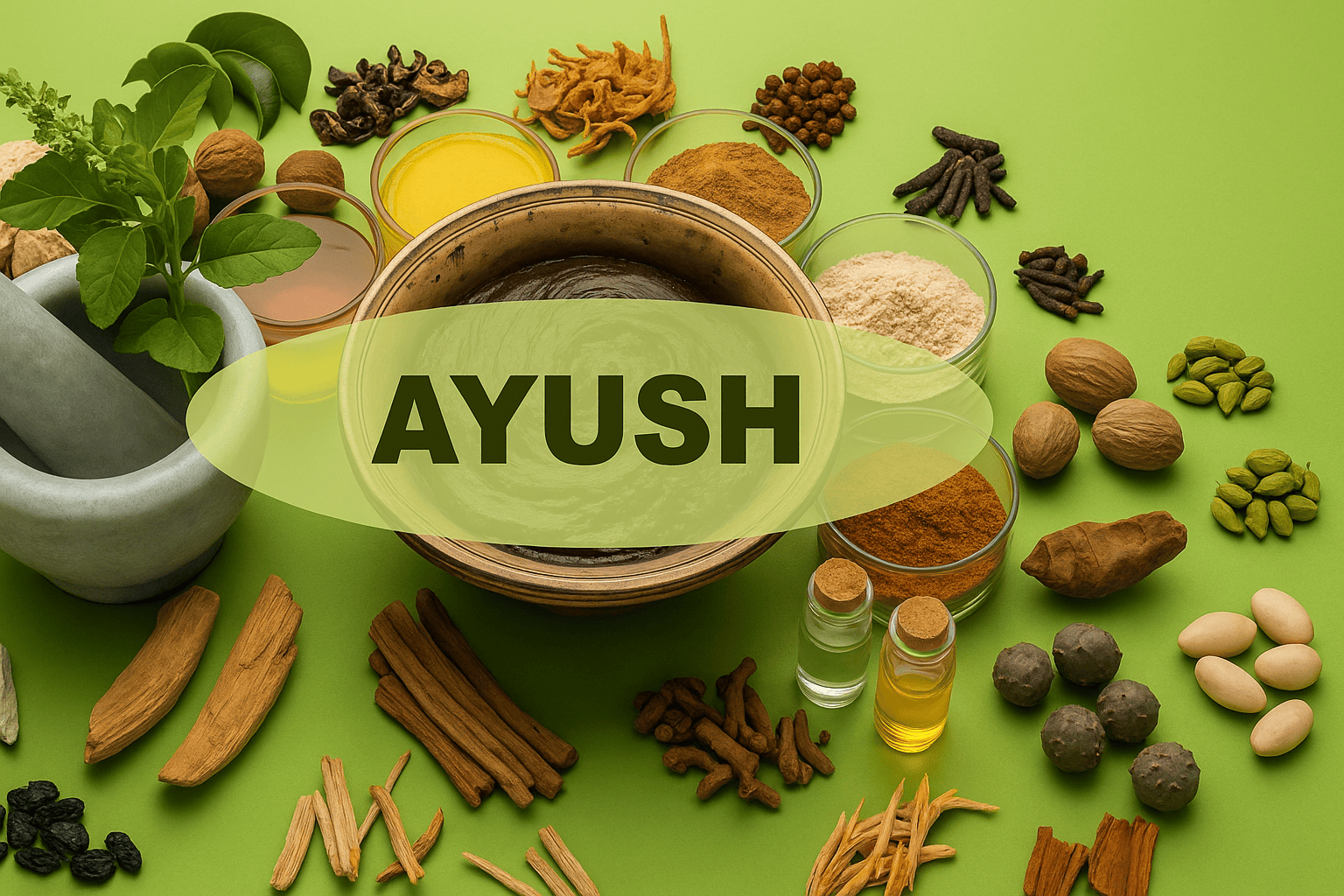The “Integration of Ayush with Modern Medicine” is fast becoming a revolutionary movement in India’s healthcare system. Spearheaded by the Ministry of Ayush, this visionary approach is transforming how traditional and modern systems collaborate to deliver holistic health services to the population.
Since 2014, the Ministry of Ayush has been implementing the National Ayush Mission (NAM), a centrally sponsored scheme that supports State and UT governments in promoting Ayush systems. The integration aims to ensure the co-existence of Ayurvedic, Unani, Siddha, Homeopathy, and modern medical practices, thus delivering accessible, inclusive, and patient-centric healthcare services.
Ayushman Arogya Mandirs: Redefining Primary Healthcare
Under the National Ayush Mission, Ayush Health & Wellness Centres, now rebranded as Ayushman Arogya Mandirs, are being set up to facilitate the integration of Ayush with modern medicine at the grassroots level. These centres are being co-located with Primary Health Centres (PHCs), Community Health Centres (CHCs), and District Hospitals (DHs), creating a robust multi-disciplinary healthcare network.
This strategy enhances accessibility to diverse treatment options and allows patients to benefit from both preventive and curative care.
Government Support for Infrastructure & Expansion
The government is investing in upgrading standalone Ayush hospitals and dispensaries. New facilities are being constructed in areas without Ayush services, and up to 50-bedded integrated Ayush hospitals are being established across the country.
Such infrastructure development is critical for effective integration of Ayush with modern medicine, enabling practitioners from both systems to collaborate, refer patients, and co-manage chronic or lifestyle-related diseases.
Evidence-Based Research: Bridging the Traditional and the Modern
A vital component of the integration of Ayush with modern medicine is the generation of scientific evidence. The Research Councils under the Ministry of Ayush—CCRAS, CCRUM, CCRS, and CCRH—are conducting extensive intramural and collaborative research to validate Ayush interventions.
Collaborations with AIIMS, NIMHANS, IITs, ILBS, and other top institutions are promoting interdisciplinary research and integrative clinical trials. These research efforts are helping build a strong scientific foundation for the use of Ayush in modern clinical settings.
Digital Integration: The Ayush Research Portal
To support global and national access to Ayush-related studies, the Ministry launched the Ayush Research Portal. This centralized digital platform features curated and peer-reviewed research articles, bolstering the credibility of the integration of Ayush with modern medicine.
The portal reflects transparency and accessibility, encouraging both practitioners and patients to explore validated treatment options across systems.
International Collaborations and Global Recognition
India is taking major strides in promoting Ayush on the global stage. Through the Central Sector IC Scheme, the Ministry supports Ayush drug manufacturers and service providers to expand internationally. This includes MoUs with 25 countries, 15 Ayush Academic Chairs abroad, and 52 institutional collaborations.
This international momentum reinforces the integration of Ayush with modern medicine, aligning with the WHO’s endorsement of traditional medicine systems and enhancing India’s global healthcare footprint.
Strengthening Research Ecosystems: Budget and Initiatives
From 2020–2025, the Ministry of Ayush allocated over ₹3,600 crore to its research councils. This financial support underscores the government’s commitment to scientifically validating Ayush systems and integrating them effectively with modern practices.
Each research council has undertaken initiatives to bolster infrastructure, upgrade labs, and promote academic collaboration. NABH, NABL, and BIS accreditations are being pursued to ensure that Ayush research institutes meet the highest standards.
Modern Tools Meet Ancient Wisdom
State-of-the-art equipment like GC-MS-MS, HPLC, AAS, and molecular biology labs are being installed in Unani, Siddha, and Homeopathy research institutes. The adoption of modern technology is a crucial step in ensuring the “integration of Ayush with modern medicine” is based on safety, precision, and reproducibility.
The Siddha system, for instance, is undergoing digitization of ancient manuscripts under Mission P2P. Homeopathy labs are being equipped for advanced drug standardization and virology research, marking a leap towards scientific modernization.
Training and Education: Building Capacity
Another pillar of successful integration of Ayush with modern medicine is the development of human resources. The Ministry is establishing new Ayush colleges and upgrading existing institutions to offer PG courses and fellowships.
Schemes like STAIRS, RITHAMS, and the CCRS PDF program are nurturing future researchers and educators who can blend traditional knowledge with scientific rigour.
Public Health and Prevention-Focused Programmes
Ayush Public Health Programmes emphasize lifestyle correction, mental well-being, yoga, and nutritional therapies. These aspects are essential in complementing modern medicine, especially in preventing and managing non-communicable diseases (NCDs).
As these public health approaches align with WHO’s traditional medicine strategy, they strengthen the integration of Ayush with modern medicine for proactive community-based healthcare.
A Harmonized Future of Healthcare
The integration of Ayush with modern medicine is not just a national mission—it is a paradigm shift in how we define health and healing. By combining the time-tested wisdom of traditional systems with the precision of modern science, India is building a unique, inclusive, and evidence-based model of healthcare.
From Ayushman Arogya Mandirs to international MoUs, research collaborations, and education initiatives, every step is directed toward making integrative medicine a reality. As the world turns towards holistic healing and wellness, India’s model offers a scalable and sustainable pathway forward—where ancient roots meet modern branches to heal humanity together.
Read Also :-
- Popularization of Ayurveda, Yoga, and Naturopathy: India’s Global Push for Holistic Health
Shree Anna for Shreshta Bharat: India’s Millet Revolution for a Healthier Future

